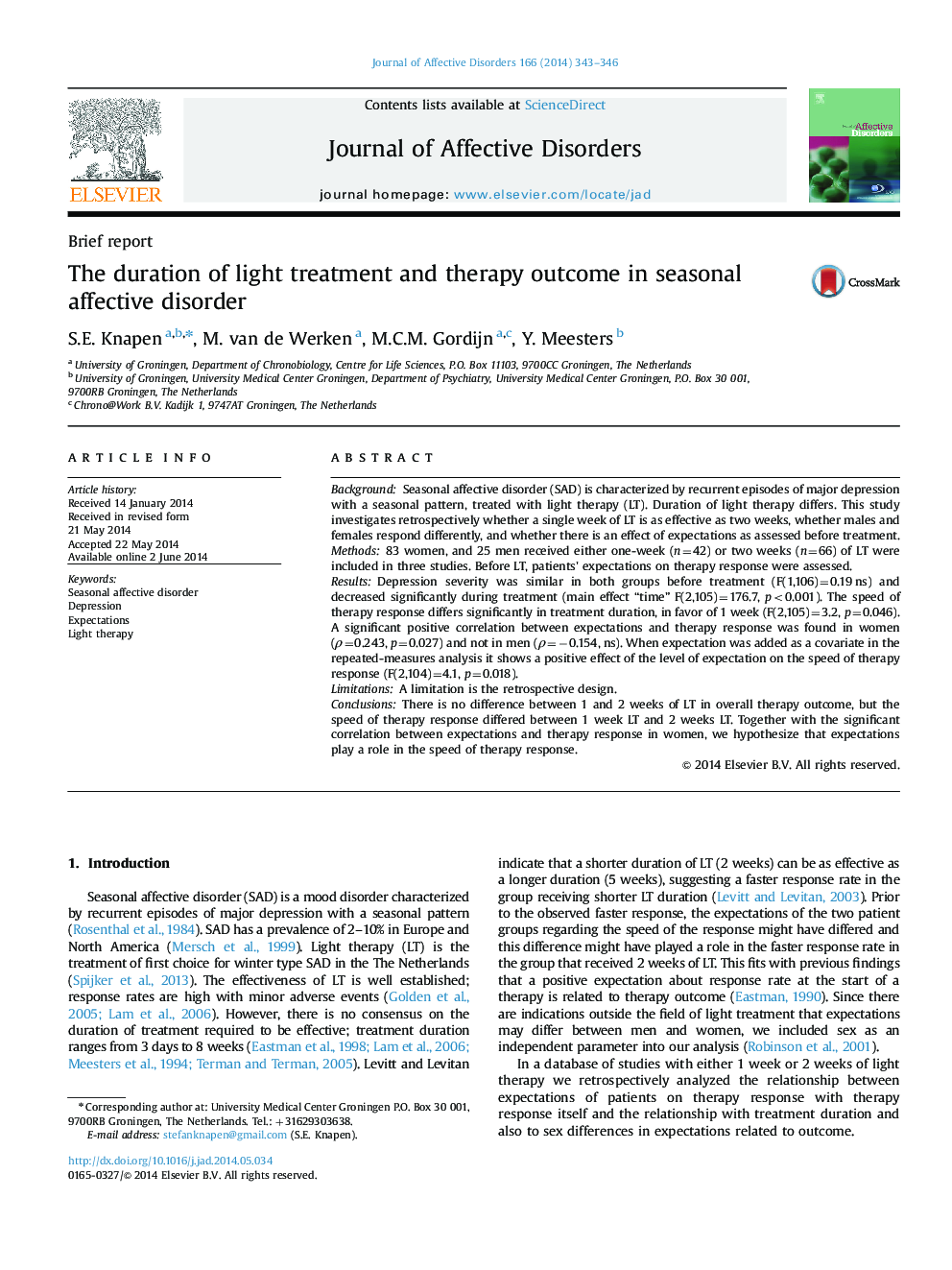| Article ID | Journal | Published Year | Pages | File Type |
|---|---|---|---|---|
| 6232476 | Journal of Affective Disorders | 2014 | 4 Pages |
BackgroundSeasonal affective disorder (SAD) is characterized by recurrent episodes of major depression with a seasonal pattern, treated with light therapy (LT). Duration of light therapy differs. This study investigates retrospectively whether a single week of LT is as effective as two weeks, whether males and females respond differently, and whether there is an effect of expectations as assessed before treatment.Methods83 women, and 25 men received either one-week (n=42) or two weeks (n=66) of LT were included in three studies. Before LT, patients׳ expectations on therapy response were assessed.ResultsDepression severity was similar in both groups before treatment (F(1,106)=0.19 ns) and decreased significantly during treatment (main effect “time” F(2,105)=176.7, p<0.001). The speed of therapy response differs significantly in treatment duration, in favor of 1 week (F(2,105)=3.2, p=0.046). A significant positive correlation between expectations and therapy response was found in women (Ï=0.243, p=0.027) and not in men (Ï=â0.154, ns). When expectation was added as a covariate in the repeated-measures analysis it shows a positive effect of the level of expectation on the speed of therapy response (F(2,104)=4.1, p=0.018).LimitationsA limitation is the retrospective design.ConclusionsThere is no difference between 1 and 2 weeks of LT in overall therapy outcome, but the speed of therapy response differed between 1 week LT and 2 weeks LT. Together with the significant correlation between expectations and therapy response in women, we hypothesize that expectations play a role in the speed of therapy response.
